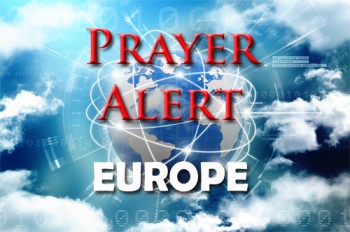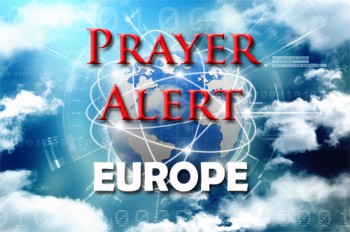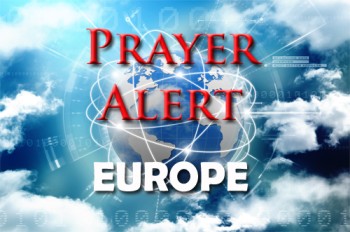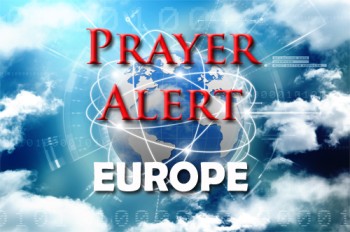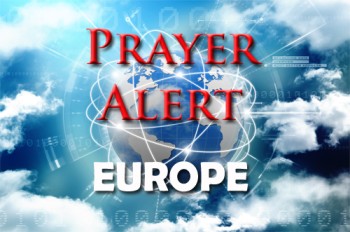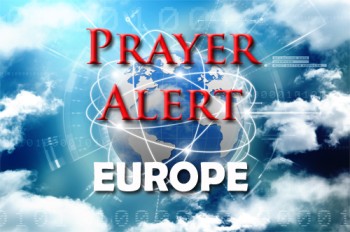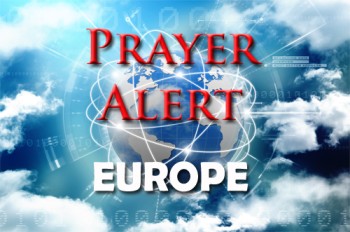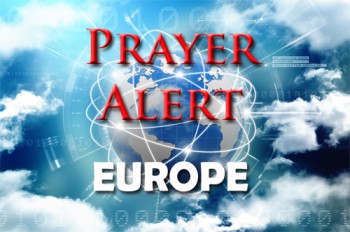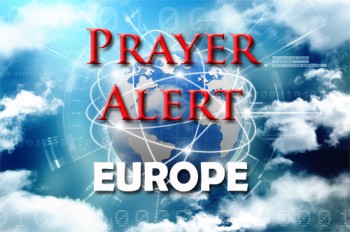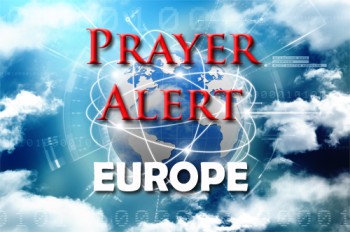Displaying items by tag: Emmanuel Macron
France: new PM to be named within 48 hours?
Emmanuel Macron is expected to appoint a new prime minister within 48 hours, following the abrupt resignation of Sébastien Lecornu’s government just 14 hours after being named. Lecornu, asked to outline a path forward, concluded that most lawmakers oppose snap elections and that a narrow parliamentary plurality could support a 2026 budget aimed at reducing France’s deficit, projected at 5.4 percent of GDP. Macron now faces the challenge of naming a leader capable of governing without a parliamentary majority - the same obstacle that brought down Lecornu’s predecessors. Choosing a centre-left prime minister from the Socialist Party could help build a coalition but would probably reignite controversy over Macron’s contested pension reform, which raised the retirement age. With political divisions deepening, Macron has yet to comment publicly, while far-right leader Marine Le Pen and her party have said they would vote to topple any new prime minister named before new elections, intensifying France’s ongoing political instability. For an assessment of Macron’s options, see
France: Macron’s options after prime minister ousted
France faces a huge political crisis after lawmakers voted to oust prime minister François Bayrou’s minority government over his controversial austerity measures. His plan to cut €43.8 billion from the budget, including the elimination of public holidays, proved too bitter for lawmakers to swallow, leading to his removal by a wide margin. Emmanuel Macron must now name a fifth prime minister in less than two years, but his options are fraught. Any new premier will confront the same fractured parliament, where ideological divides between socialists and conservatives leave little space for compromise. A snap election would most likely lead to another hung parliament, while a technical caretaker government risks political paralysis. Though Macron’s resignation as president is highly improbable, his authority appears diminished. Financial markets are watching nervously as doubts grow over France’s ability to curb its soaring debt and deficits. Latest update: a new prime minister has been sworn in, but a grassroots group ‘Let’s block everything’ organised widespread protests, some violent, on 10 September. See
France: Macron admits violence against Cameroon independence movement
Emmanuel Macron has publicly acknowledged the violence committed by French forces in Cameroon during and after the country’s independence struggle from 1945 to 1971. A joint report by Cameroonian and French historians has detailed how France’s colonial authorities and army used severe repression, including mass killings, internment camps, and support for brutal militias, leading to tens of thousands of deaths. Macron named four independence leaders killed during French-led military operations and accepted France’s responsibility, but stopped short of offering an apology or addressing calls for reparations. Cameroonian responses have been mixed: some see acknowledgment as a positive step, while others say it is insufficient without concrete acts of justice. The report followed years of pressure for France to confront its colonial history, and Macron has taken similar steps regarding atrocities in Senegal, Rwanda, and Algeria, though often without formal apologies. The admission opens the door for further research and debate about France’s colonial legacy and reconciliation.
France: prime minister proposes axing two public holidays
There has been widespread criticism after prime minister François Bayrou proposed eliminating two public holidays - Easter Monday and 8 May (Victory in Europe day) - to help reduce the national budget deficit. He argues that France’s debt is a critical threat, increasing by €5,000 every second, and that cutting holidays is part of a necessary strategy to recover €43.8 billion in savings. The proposal comes alongside other austerity measures, including freezing public spending, ending tax breaks for the wealthy, and reducing the civil service, while also increasing defence spending by €3.5 billion in 2026. His plan faces fierce opposition from the far-right and left-wing parties, with threats of a no-confidence vote which could topple the government, as happened to Bayrou’s predecessor. Critics have decried the holiday cuts as attacks on French heritage and workers' rights. Despite the political risks and deep parliamentary divisions, Bayrou insists the reforms are essential to preserve national stability. President Macron, although deeply unpopular, has consistently resisted suggestions that he should step down before the end of his second term, in 2027.
Migrant boat crossings: France and UK aiming to curb the flow
Emmanuel Macron and Keir Starmer are engaged in critical talks aimed at curbing illegal Channel crossings in small boats. During Macron’s historic state visit to the UK, the first by a French president since 2008, the two leaders are negotiating enhanced border enforcement, including a ‘one in, one out’ migrant returns deal. The plan would allow the UK to return asylum seekers to France in exchange for accepting migrants with family ties in Britain. Macron stressed the importance of EU-level cooperation and reaffirmed the shared responsibility to combat irregular migration with humanity and fairness. Talks also include expanding French police powers to stop boats in shallow waters - a shift already showing signs of implementation. Despite optimism, challenges remain, including opposition from some EU countries. Small boat arrivals in the UK reached a record high in the first half of 2025, which underscores the urgency of finding ways of curbing the flow. Both nations hope for tangible progress in their joint response to people-smuggling networks.
Ukraine: Russia bombs hospital as naval ceasefire is negotiated
Russia and Ukraine have reached separate agreements with the USA on a naval ceasefire in the Black Sea, following peace talks in Saudi Arabia. Though indirect, the negotiations resulted in a promise to halt attacks on energy infrastructure and reopen critical trade routes. Volodymyr Zelensky welcomed the move but said it was too early to gauge its effectiveness. The Kremlin, however, tied the ceasefire to the lifting of sanctions on its food and fertiliser sectors, demanding restored access to financial systems and agricultural trade tools. The USA acknowledged it would support restoring Russia’s global market access in these areas, prompting Zelensky to criticise the move as a concession. Ukraine warned that any expansion of Russian naval activity beyond agreed zones would violate the ceasefire and justify defensive action. It is also calling for increased US support and sanctions if Russia fails to honour its commitments. Even as the negotiators were meeting, a Russian missile hit a hospital, injuring dozens: see Breaking news: France and the UK are at the forefront of a united European message of support for Ukraine: see
France: government collapses in no-confidence vote
Prime minister Michel Barnier has been ousted in a historic no-confidence vote, leading to the collapse of his government. The motion follows his controversial use of special powers to pass a budget without parliamentary approval. The budget, which aimed to reduce the deficit by €60 billion, faced criticism from both the left-wing New Popular Front (NFP) and far-right National Rally (RN); Marine Le Pen, RN leader, called it ‘toxic for the French’. This has plunged France into deeper political instability; no new parliamentary elections can be held until July, so the current deadlock in the Assembly - where no group has a working majority - is set to continue. Barnier, appointed by Emmanuel Macron just three months ago, has presented his government’s resignation, but will continue for now in a caretaker capacity. Macron’s presidency remains intact, but pressure on him is mounting.
France: left-wing parties split by call for impeachment
The French left is facing internal divisions once again, this time sparked by Jean-Luc Mélenchon's call to impeach President Emmanuel Macron. Mélenchon and his allies in the France Unbowed movement are pressuring Macron to appoint Lucie Castets as prime minister, threatening impeachment if he refuses. This has highlighted the fragility of the New Popular Front alliance, which includes Socialists, Greens, and Communists, and undermines the unity they displayed in recent snap elections. While the impeachment threat is unlikely to succeed (it requires a two-thirds majority in both houses of parliament), it has exposed significant fractures within the left-wing coalition. All the other parties, including Castets’ supporters, were quick to distance themselves from the idea. This discord is seen as advantageous for Macron's camp, as it weakens the opposition.
France: leftist alliance rejects Macron’s calls for coalition after inconclusive election
Emmanuel Macron has urged France's mainstream political forces to form a coalition after the elections resulted in a hung parliament. The New Popular Front, which emerged as the largest bloc with around 190 seats, have demanded that Macron accept their pick for prime minister and allow them to form a government. They insist that respecting the election results is essential for democracy. Any new government - of the left, centre, or a broader coalition - could quickly fall victim to a no-confidence vote from the opposition if it has not secured sufficient support. One commentator has said that it will have to seek to pass laws on a case by case basis, with ad hoc agreements. For more details about how Marine le Pen’s dreams have unravelled - her party unexpectedly came third in the elections - see
France: manoeuvres ahead of second round of elections
Opponents of Marine le Pen’s far-right party National Rally (RN) have intensified efforts to block it from power, with over 200 candidates withdrawing from run-off elections to avoid splitting the anti-RN vote. RN led the first-round vote; the radical left-wing LFI was second, and Macron's centrist group third. Polls give RN between 250 and 300 seats: they need 289 for an outright majority. Macron has said that the top priority is blocking the RN, even if that meant endorsing an LFI candidate, but it was uncertain whether voters would follow that route. Le Pen stated RN would not form a government without a workable majority, hinting at alliances with other parties if needed. The RN would cut funding to the EU, and its anti-migrant policies have been criticised by human rights groups. There are fears that a hung parliament would lead to policy paralysis for the remaining three years of Macron's presidency.
